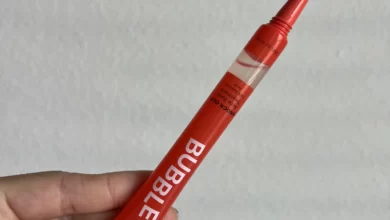9 Best At-Home Laser Hair Removal Tools For Visible Results

What is at-home laser hair removal?
Dr. Yadav s at-home laser hair removal is a weaker form of professional laser hair removal. In fact, it’s a bit of a misnomer, says Dr. Hirsch, since the majority of these at-home devices aren’t lasers at all but actually intense pulsed light (IPL) machines. More on that below.
How does at-home laser hair removal work?
Most at-home laser hair removal devices are actually IPL machines, which use high-intensity visible light to heat the melanin, or pigment, within the hair and damage the follicle to permanently reduce growth, explains Dr. Kilgour. It’s important to note that at-home devices usually only use one form of technology to destroy the hair follicle (usually IPL but occasionally diode lasers as well), whereas in-office laser hair removal treatments use a range of different technologies, including IPL and diode lasers, resulting in more efficient and effective results. That being said, at-home laser hair removal devices can still be successful in reducing and controlling hair growth; they simply require more frequent treatments.
Does laser hair removal hurt?
We’ll be honest: Laser hair removal certainly doesn’t feel good, but the sensation should be more uncomfortable than painful (but of course, everyone’s pain tolerance is different). And since at-home laser hair removal isn’t as strong as in-office treatments, it’s also a slightly less intense feeling on the skin. Dr. Yadav likens it to the snap of a rubber band against the skin.
Is at-home laser hair removal safe?
For the most part, at-home laser hair removal is perfectly safe—but not necessarily for everyone. Because laser hair removal targets melanin, it’s not really ideal for darker skin tones, especially Fitzpatrick V and VI, Dr. Yadav says. As Dr. Kilgour explains, the melanin within the hair that needs to be heated to destroy the follicle is the same melanin giving the skin its pigments, which puts darker skin tones at significant risk of developing hyperpigmentation (darkening of the skin) or hypopigmentation (lightening of the skin) in areas treated with laser hair removal. Beyond that, because at-home laser hair removal devices are significantly weaker than professional alternatives, overall risks are significantly reduced—just be sure you’re using an FDA-cleared device to cover all your bases.
Is at-home laser hair removal permanent?
Laser hair removal doesn’t permanently remove hair but rather permanently reduces hair—an important difference to note. “Once a hair follicle is fully destroyed, it cannot grow hair again,” Dr. Yadav explains. “Hair removal devices can certainly destroy hair follicles to the point that they will not produce hair. However, with both at-home and professional laser hair removal, you’ll find that some of the hair follicles are just weakened and damaged. Those can produce hair again, either immediately or at some point down the road.”
Can you shave between at-home laser hair removal sessions?
You’re more than just allowed to shave between at-home laser hair removal sessions; Dr. Hirsch says it’s recommended. When hair is shaved down, the only pigment the device can “see” is the follicle beneath the skin. If hair is longer, the energy will be confused (and ultimately wasted) on hair that’s already come to the skin’s surface rather than concentrated on the follicle.
What to know about laser hair removal aftercare
Because at-home laser hair removal devices are so much gentler than professional devices, many people find they don’t need much aftercare outside of SPF. Though your skin may not feel compromised, light-based treatments increase your photosensitivity and, according to Dr. Yadav, going unprotected could result in a sunburn or hyperpigmentation. If skin feels tender or inflamed post-treatment (which, again, is fairly rare), she suggests using hydrocortisone cream or taking an anti-inflammatory OTC medication.
Final takeaway
While at-home laser hair removal can certainly help reduce hair growth over time, it’s important to do your research to be sure you’re picking a device suitable for your skin so you don’t cause any harm. Ultimately, it is a bit more work than a quick shave or wax and will require more frequent treatment. However, if you’re playing the long game for hair removal and want to save on regular trips to a professional’s office, it’s definitely an option that’s worth the investment.

